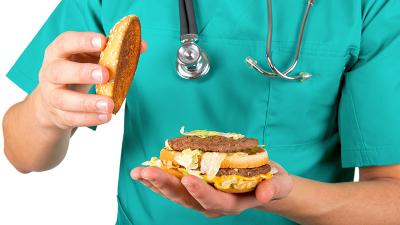Protect Against Prostate Cancer: Ditch Dairy and Other Tips

Metastatic prostate cancer cases are on the rise—up 72 percent in men ages 55 to 69 years old in the last decade—according to a new study in the journal Prostate Cancer and Prostatic Diseases. Dietary changes can help reduce prostate cancer risk and prevent its progression if diagnosed. Here are a few simple steps men should take today:
Metastatic prostate cancer cases are on the rise—up 72 percent in men ages 55 to 69 years old in the last decade—according to a new study in the journal Prostate Cancer and Prostatic Diseases. Dietary changes can help reduce prostate cancer risk and prevent its progression if diagnosed. Here are a few simple steps men should take today:
1. Ditch dairy.
A meta-analysis published in the American Journal of Clinical Nutrition found that total dairy product, total milk, low-fat milk, cheese, and dietary calcium intakes were associated with an increased risk for prostate cancer. According to a study published in the International Journal of Cancer, men who consumed three or more servings of dairy products a day had a 141 percent higher risk for death due to prostate cancer compared to those who consumed less than one serving. Both high- and low-fat dairy products were associated with increased mortality.
Learn more at MilkCausesProstateCancer.org.
2. Eliminate eggs.
A Harvard study found that men diagnosed with prostate cancer who ate the most eggs had a two-fold increased risk of cancer progression.
3. Protect with plants.
A plant-based diet can protect against prostate cancer. In a recent study, researchers compared several dietary patterns and cancer incidence rates for 26,346 participants. Men who followed a vegan diet experienced a 35 percent lower prostate cancer risk than those following a nonvegetarian, lacto-ovo-vegetarian, pesco-vegetarian, or semi-vegetarian diet.
Lycopene, part of the carotenoid family, is a pigment that helps give red fruits and vegetables their color and it's also one of the free radical-fighting antioxidants. In the Health Professionals Follow-up Study, the authors concluded that consumption of tomato-based foods may be linked to a reduced risk of prostate cancer.








